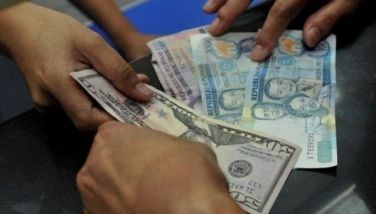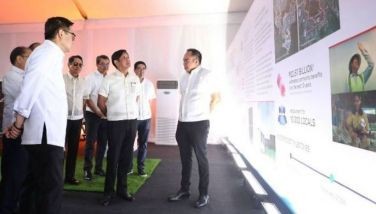Enforcing a constitutional right
There are at least five petitions for recall elections pending with the Commission on Elections (Comelec) which now face uncertainty and may likely be overtaken by political events.
Among these are the ones involving Gov. Wilhelmino Sy-Alvarado of Bulacan for alleged lack of trust and confidence, mayors Lucilo Baylon of Puerto Princesa City, Oscar Moreno of Cagayan de Oro City, Marnelli Ballesteros-Robles of Bulan, Sorsogon, and Carolina Dellosa of Baliuag, Bulacan.
In October, Comelec suspended all recall proceedings until the Budget department had acted on the poll body’s request for supplemental funds. The following month, Comelec a resolution partially lifting the suspension by allowing the petitioners to “post and publish” the recall notices provided the requirements have been met.
It may either be the proverbial light at the end of the tunnel, or a false hope.
Admit it or not, time is fast running out on all the petitioners in view of the May 2016 elections as well as the uncertainty of Comelec’s actions on these pleas, considering that the proposed 2015 General Appropriations Act has allocated only P10 million for the conduct of recall elections.
This is good as the local government officials concerned would likely win their respective recall battles by default.
But what about the people who stand to lose in the recall struggle through no fault of their own?
The people’s right to recall elections is enshrined in the Constitution. Unfortunately, enforcing this right is another thing.
It is about time that something be be done to strengthen our system of recall elections.
The Comelec’s act of suspending the recall process indefinitely is tantamount to upholding the tenure of an elective official who has lost the trust and confidence of his constituents, as well as a betrayal of the people’s right to choose their political leaders.
Education takes a backseat
Perhaps because of the holidays, the country may not have noticed the ongoing row between two major institutions in the country.
On one side are the Benitezes, the family who is at the helm of Asia’s first university for women—the Philippine Women’s University. A prestigious school upheld by a long-standing tradition of excellence.
On the other is STI Holdings, one of the pioneers in IT education in the country.
In 2011, the two entered into a joint venture agreement which called for STI putting in P450 million for a 40 percent share of UNLAD Resource Development Center. UNLAD, owned by the Benitezes, is a for-profit organization that owns the real estate properties of PWU and was responsible for the management of the university and its resources.
At the time, PWU was in debt with BDO for P233 million. Unable to settle it, the bank was poised to foreclose on the school. STI settled the debt on behalf of their partners
In order for the 40% stake of STI in UNLAD to materialize, the Benitez family needed to increase the authorized capital of UNLAD from P20 million to P1.5 billion. After three years of partnership, this did not happen. So where did the P450 million go?
Shortly after, Conrad Benitez stated that he wanted to terminate their partnership with STI.
STI, which intervened in the foreclosure of PWU, is the mortgagee of all the real properties of PWU. And with the Benitez declaring their intent to dissolve their partnership, this inevitably led to a default situation by PWU for failure to comply with the joint venture agreement and prompted STI to implement a requirement imposed by BDO for the loan, the resignation letters of the Benitezes and their group from the board. That means STI now holds eight of the 10 seats in the PWU board.
So what happens now with PWU? Can STI bring back its lost glory, given that it has the knowledge and means to bring PWU relevant to the times?
The bottom line of all this is education — finding ways to provide better, more efficient, more accessible ways to learn; giving students the chance to do so in a campus that will encourage it; and building a legacy of strong academics and excellence despite the changing times.
This bottom line has since gotten lost in the muddle of petty grievances posited by the university’s current management. And unless students, or the public for that matter, become more objective and try to see beyond self-interests, it will never be achieved.
For comments, e-mail at [email protected]
- Latest
- Trending




























